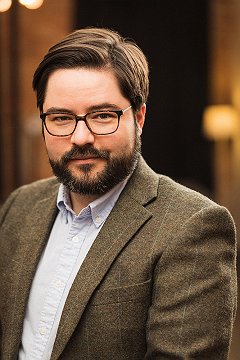Integrating Ethics into Computer Science Education: Multi-, Inter-, and Transdisciplinary ApproachesCCIn-Person
While calls to integrate ethics into computer science education go back decades, recent high-profile ethical failures related to computing technology by large technology companies, governments, and academic institutions have accelerated the adoption of computer ethics education at all levels of instruction. Discussions of how to integrate ethics into existing computer science programmes often focus on the structure of the intervention—embedded modules or dedicated courses, humanists or computer scientists as ethics instructors—or on the specific content to be included—lists of case studies and essential topics to cover. While proponents of computer ethics education often emphasize the importance of closely connecting ethical and technical content in these initiatives, most do not reflect in depth on the variety of ways in which the disciplines can be combined. In this paper, I deploy a framework from cross-disciplinary studies that categorizes academic projects that work across disciplines as multidisciplinary, interdisciplinary, or transdisciplinary, depending on the degree of integration. When applied to computer ethics education, this framework is orthogonal to the structure and content of the initiative, as I illustrate using examples of dedicated ethics courses and embedded modules. It therefore highlights additional features of cross-disciplinary teaching that need to be considered when planning a computer ethics programme. I argue that computer ethics education should aim to be at least interdisciplinary—multidisciplinary initiatives are less aligned with the pedagogical aims of computer ethics—and that computer ethics educators should experiment with fully transdisciplinary education that could transform computer science as a whole for the better.
I am a Postdoctoral Fellow of Embedded EthiCS™ at Harvard University. Embedded EthiCS is Harvard’s computer ethics programme, which integrates ethics lessons into the computer science curriculum. My role as the “Bridge Fellow” is to coordinate outreach with other organizations developing computer ethics curricula.
In my research, I am interested in issues at the crossroads between ethics and social epistemology, especially epistemic injustice, moral and intellectual responsibility, and applications in the ethics of information technology. I also maintain a secondary research interest in the philosophy of education.
I completed my Ph.D. at the University of Sheffield in 2018. My thesis, supervised by Miranda Fricker and Paul Faulkner, argued that we can be blameworthy for using morally defective concepts of the social world, and for being ignorant of apt concepts developed by marginalized groups. From 2019–2021, I was a Banting Postdoctoral Fellow in Philosophy at Dalhousie University, where I also taught Social, Ethical, and Professional Issues in Computer Science. In summer 2021, I co-designed an AI Ethics micro-credential course series for Athabasca University.
I also design games. You can find my work at https://errantcanadian.itch.io/
My pronouns, roughly in descending order of preference (though it varies day by day), are he/they/she.
My surname is pronounced /gets/.
Fri 17 MarDisplayed time zone: Eastern Time (US & Canada) change
10:45 - 12:00 | |||
10:45 25mPaper | Integrating Ethics into Computer Science Education: Multi-, Inter-, and Transdisciplinary ApproachesCCIn-Person Papers Trystan S. Goetze Harvard University DOI | ||
11:10 25mPaper | Is More Better When Embedding Ethics in CS Courses?CCIn-PersonGlobal Papers Diane Horton University of Toronto, David Liu University of Toronto, Sheila McIlraith University of Toronto, Nina Wang University of Toronto DOI | ||
11:35 25mPaper | Piloting an Interactive Ethics and Responsible Computing Learning Environment in Undergraduate CS CoursesCCIn-Person Papers Francisco Castro New York University and University of Massachusetts Amherst, Sahitya Raipura University of Massachusetts Amherst and Columbia University, Heather Conboy University of Massachusetts, Amherst, Peter Haas University of Massachusetts Amherst, Leon Osterweil University of Massachusetts Amherst, Ivon Arroyo University of Massachusetts Amherst DOI | ||
